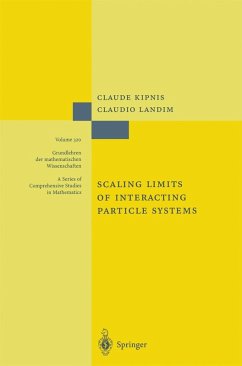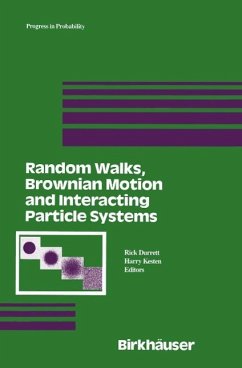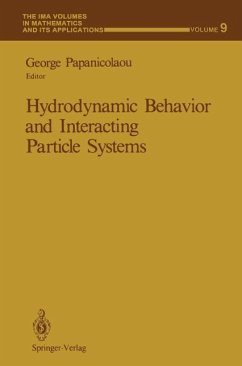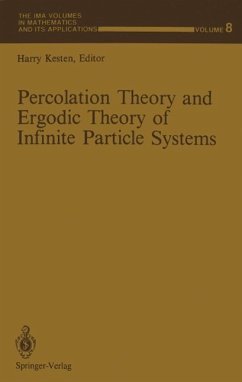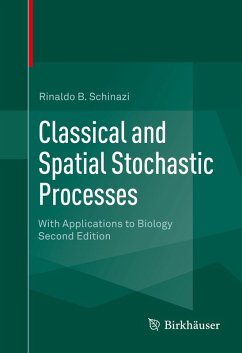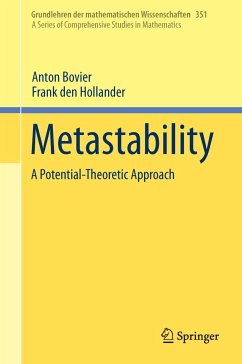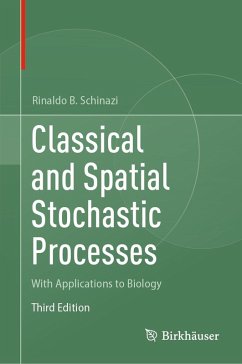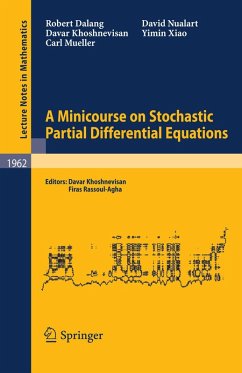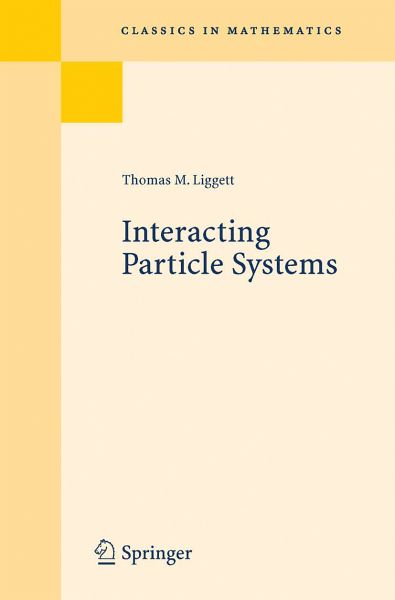
Thomas M. Liggett
eBook, PDF
Interacting Particle Systems (eBook, PDF)
Versandkostenfrei!
Sofort per Download lieferbar

PAYBACK Punkte
22 °P sammeln!





From the Reviews:
"A complete treatment of a new class of random processes...The high quality of this work, on a technically difficult subject, makes a fascinating subject and its open problem as accessible as possible. Mathematical Reviews
"A complete treatment of a new class of random processes...The high quality of this work, on a technically difficult subject, makes a fascinating subject and its open problem as accessible as possible. Mathematical Reviews
Dieser Download kann aus rechtlichen Gründen nur mit Rechnungsadresse in A, B, BG, CY, CZ, D, DK, EW, E, FIN, F, GR, HR, H, IRL, I, LT, L, LR, M, NL, PL, P, R, S, SLO, SK ausgeliefert werden.
- Geräte: PC
- ohne Kopierschutz
- eBook Hilfe
- Größe: 17.68MB
- Text-to-Speech
- E-Mail des Verlags für Barrierefreiheitsfragen: accessibilitysupport@springernature.com
- Keine Einschränkung der Vorlesefunktionen, außer bei spezifischen Ausnahmen
- Bekannt für fehlende wesentliche Barrierefreiheitsmerkmale
Thomas Liggett was born on March 29, 1944 in Danville, Kentucky. At the age of two, he moved with his missionary parents to Latin America. His early education took place primarily in Buenos Aires, Argentina and San Juan, Puerto Rico. He attended college at Oberlin, where he became interested in probability theory under the influence of Samuel Goldberg, who had been a student of William Feller. He continued his study of probability at Stanford, taking many classes with Kai Lai Chung, and writing a thesis on problems related to the invariance principle with Samuel Karlin. In 1969 he joined the UCLA faculty; he has spent his entire career there. In addition to his teaching and research activities, he has been active in academic administration, serving as vice-chair and chair of the UCLA Department of Mathematics.
Liggett was chief editor of The Annals of Probability in 1985-87. He was a Sloan and a Guggenheim Fellow, spoke at the the 1986 International Congress of Mathematicians, and was the 1996 Wald Memorial Lecturer for the Institute of Mathematical Statistics.
Professor Liggett's interest in interacting particle systems began shortly after his move to UCLA, when he read a preprint of Frank Spitzer's fundamental 1970 paper. It is an unusual paper, in that it is much more concerned with descriptions of models and statements of open problems than with proofs of theorems. It provided an ideal way for a young probabilist to test his mettle: The challenge was to solve as many of Spitzer's problems as he could. The subject of interacting particle systems has continued to be the main focus of his research. He has written two books (the other is
Stochastic Interacting Systems: Contact, Voter and Exclusion Processes) and over 60 papers in this area. He has also contributed to a number of other fields, including nonlinear semigroups, subadditive ergodic theory, negative dependence, optimal stopping, combinatorics, random graphs, and renewal theory.
Liggett was chief editor of The Annals of Probability in 1985-87. He was a Sloan and a Guggenheim Fellow, spoke at the the 1986 International Congress of Mathematicians, and was the 1996 Wald Memorial Lecturer for the Institute of Mathematical Statistics.
Professor Liggett's interest in interacting particle systems began shortly after his move to UCLA, when he read a preprint of Frank Spitzer's fundamental 1970 paper. It is an unusual paper, in that it is much more concerned with descriptions of models and statements of open problems than with proofs of theorems. It provided an ideal way for a young probabilist to test his mettle: The challenge was to solve as many of Spitzer's problems as he could. The subject of interacting particle systems has continued to be the main focus of his research. He has written two books (the other is
Stochastic Interacting Systems: Contact, Voter and Exclusion Processes) and over 60 papers in this area. He has also contributed to a number of other fields, including nonlinear semigroups, subadditive ergodic theory, negative dependence, optimal stopping, combinatorics, random graphs, and renewal theory.
Produktdetails
- Verlag: Springer Berlin Heidelberg
- Seitenzahl: 496
- Erscheinungstermin: 9. Januar 2006
- Englisch
- ISBN-13: 9783540269625
- Artikelnr.: 37369269
Für dieses Produkt wurde noch keine Bewertung abgegeben. Wir würden uns sehr freuen, wenn du die erste Bewertung schreibst!
Eine Bewertung schreiben
Eine Bewertung schreiben
Andere Kunden interessierten sich für


